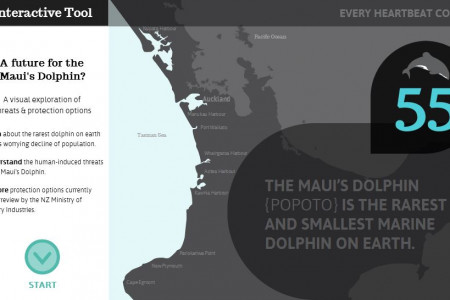
Challenges for Pest Management in New Zealand
Challenges in Pest Management for New Zealand the ROYAL SOCIETY of NEW ZEALAND TE APĀRANGI Pests continue to threaten our economy and environment and cost the country billions of dollars in lost revenue and control costs and result in long term losses of native biodiversity AQUATIC ENVIRONMENT NATURAL ENVIRONMENT PRODUCTIVE ENVIRONMENT Annual production losses to aquaculture from a single species of sea squirt were estimated at $15 million per annum in 2005. Mammal pests and weeds are major threats to the conservation estate. Weeds could potentially degrade 7% of our conservation estate within a decade. Pastoral weeds are conservatively estimated to cost the New Zealand economy $1.2 billion per annum in lost animal production and control costs. Biosecurity and pest management are crucial to New Zealand's environmental and economic wellbeing Vertebrate Pests 32 mammal and 35 bird species have become established and many have become pests. Pathogenic Micro-organisms Invertebrate Pests There are an estimated pose a threat including cabbage tree die-back, kauri decline, and bacterial kiwifruit vine disease. 2,200 established exotic invertebrate species. Freshwater pests Weeds destabilise aquatic habitats, and modify water flow with negative consequences for drainage, irrigation, power generation, and recreational activities. 25,000 exotic plant species form a huge pool for potential 'sleeper weeds' threatening both the conservation and Marine pests agricultural sectors. displace native species and pose threats to aquaculture, maritime industries, recreational pastimes and affect human health. Although New Zealand is at the forefront of incorporating ethical and welfare principles internationally, pressures on pest management tools remain a major policy challenge Evolved resistance Trade issues Public concerns Increasing pest resistance is making some invertebrate pesticides and herbicides ineffective. Growing demands of international trade require high quality, residue- free and ethical primary production. The public is increasingly concerned about food safety, environmental impacts and humaneness standards. Effective, safe and ethical pest management requires innovation of methods and integration of research and technology To counter the loss of older and less acceptable pest management tools and to have a range of tools available, existing tools need to be improved and new approaches developed Chemical pesticides Physical methods Biological control Fertility control The trend is away from broad-spectrum and persistent products towards more selective, short-lived agents. Physical methods include mass trapping, shooting, or manual removal. Recent innovations are Control through introduction of a natural enemy, augmen- Mating disruption technology and sterile insect technique are some recent examples of fertility control. tation of native herbivores, self-resetting traps and pheromone-based lures. predators or parasites, or by bio-pesticides with naturally- occurring pathogens. Targets Targets Targets Targets Effective and targeted, safe and sustainable, ethical and humane pest management Surveillance and pest monitoring can increase Species-focused research can improve the understanding the chances of successful pests, eradication of new their interactions and their incursions and prevent the recovery of existing pests. impacts. Better integration of pest management science and central and local govern ment agencies Specialist taxonomic and ecological expertise is urgently needed to distinguish indigenous species from exotic threats. Information technology can move pest management towards "real time" control. Citizen Science can Public attitudes to novel empower local enthusiasts to look after local areas tactics need to be explored, and ways of improving public engagement developed. and waterways. Sources Find the paper online: Emerging Issues | March 2014 "Challenges for pest management in New Zealand" www.royalsociety.org.nz/pestmanagement Except for the RSNZ logo, this work is lice nsed under a Creative Commons 3.0 New Zealand Licence. or visit www.royalsociety.org.nz for more information
Challenges for Pest Management in New Zealand
Source
http://www.r...anagement/Category
ScienceGet a Quote









